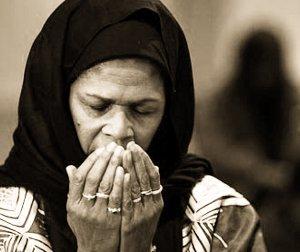
The day the so-called Islamic State (IS) destroyed the ancient Assyrian archaeological site of Nimrud in Iraq, Professor Amina Wadud led a mixed-gender Friday congregational prayer at a church in London. The world heard about one event but not the other. Apparently woman-led prayer among Muslims simply cannot compete for media space when faced with the latest of IS’s mind-boggling atrocities.
Admittedly, what Wadud and the Inclusive Mosque Initiative (IMI) did on 6 March 2015 – two days before International Women’s Day – was nothing new. Wadud, a professor of Islamic Studies, first made headlines ten years ago when she gave the khutbah (sermon) and led mixed-gender Jumu’ah (Friday) prayers in New York. Three years later, she led mixed-gender Friday prayers in Oxford, England.
Both times she confronted criticisms, condemnations and even threats from Muslims worldwide. At the New York event, a Muslim man protesting outside the church that hosted the prayer said, “She is tarnishing the whole Islamic faith. If this was an Islamic state, this woman would be hanged.” After the Oxford event the vice-president of the Muslim Association of Britain took her to task, reiterating that only a Muslim man could lead a mixed, segregated congregation in prayer.
It would be so tempting for Muslims and non-Muslims to conclude that Wadud and those who prayed behind her were a deluded bunch. Women imams? Dream on! Yet, six years after the New York prayer, Hamza Yusuf – arguably the most influential Islamic scholar in the West – publicly stated that there have always been diverse views on woman-led prayer within Islam. In fact, more than a thousand years ago, the renowned Qur’anic commentator and jurist Al-Tabari considered it permissible for women to lead men in prayer if they were more qualified. Even Ibn Taymiyyah, doyen of contemporary political Islamists, considered it permissible for a woman to lead mixed gender prayer – provided she stood at the back.
So there is clear evidence that Wadud’s interpretation of Islam has valid, established precedence in Islamic history. But why must she continue to endure the wrath of so many of her co-religionists? And why have Islamic authorities who know better or should know better not spoken up in her defence? Sure, Hamza Yusuf should be commended for making his views public, but why wait for years after Wadud was demonised and vilified by other Islamic quacks and hacks?
It seems that this conspiracy of silence continues, even as groups like IS, Boko Haram and the Taliban claim Islamic authority and target libraries and schools in their violent campaigns. Ironically, although many normative Islamic authorities might condemn these groups, they all seem to share a common desire to keep most Muslims ignorant about the rich diversity of Islamic thought and learning. And in doing so, they collectively fan the flames of Islamophobia which are so often fuelled by stereotypes of Islam’s “backwardness” and lack of rationality.
So the IMI’s mixed-gender, woman-led Friday prayer in London was neither new nor newsworthy. But it was crucial, especially for Muslims needing reassurance that Islam itself provides a treasury of resources to combat multiple hypocrisies from Islamophobes and so-called Islamic authorities.
Shanon Shah has just submitted his PhD thesis on the sociology of religion. He writes about the lived or politicised aspects of religion, gender, sexuality and human rights, especially regarding Islam.
